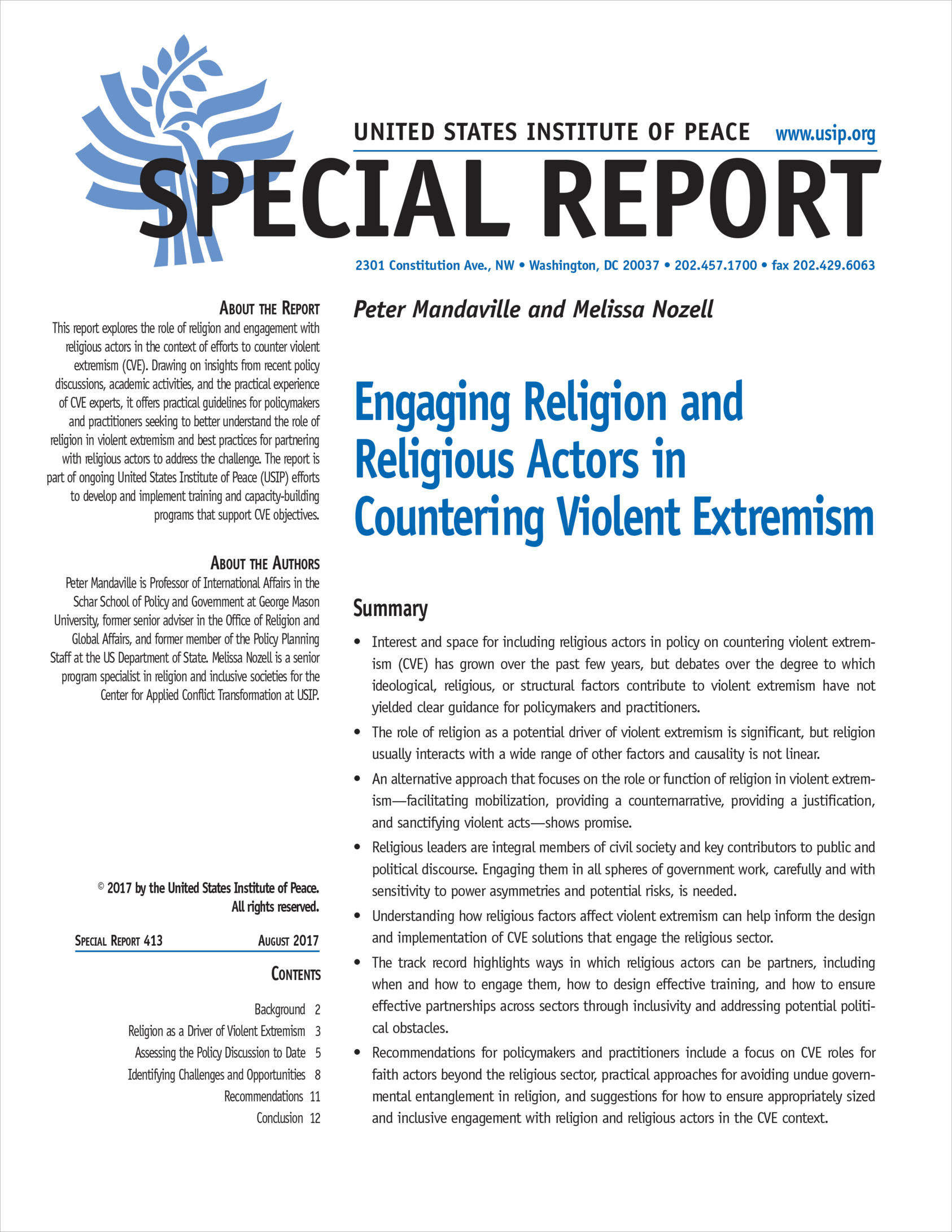By more fully understanding the role of religion in violent extremism and adopting a broad-based and inclusive approach to engaging religious actors, policymakers and practitioners can better advance countering violent extremism objectives. In this report, a former senior policy adviser and a USIP senior specialist explore the nexus of religion and violent extremism.
Summary
- Interest and space for including religious actors in policy on countering violent extremism (CVE) has grown over the past few years, but debates over the degree to which ideological, religious, or structural factors contribute to violent extremism have not yielded clear guidance for policymakers and practitioners.
- The role of religion as a potential driver of violent extremism is significant, but religion usually interacts with a wide range of other factors and causality is not linear.
- An alternative approach that focuses on the role or function of religion in violent extremism—facilitating mobilization, providing a counternarrative, providing a justification, and sanctifying violent acts—shows promise.
- Religious leaders are integral members of civil society and key contributors to public and political discourse. Engaging them in all spheres of government work, carefully and with sensitivity to power asymmetries and potential risks, is needed.
- Understanding how religious factors affect violent extremism can help inform the design and implementation of CVE solutions that engage the religious sector.
- The track record highlights ways in which religious actors can be partners, including when and how to engage them, how to design effective training, and how to ensure effective partnerships across sectors through inclusivity and addressing potential political obstacles.
- Recommendations for policymakers and practitioners include a focus on CVE roles for faith actors beyond the religious sector, practical approaches for avoiding undue governmental entanglement in religion, and suggestions for how to ensure appropriately sized and inclusive engagement with religion and religious actors in the CVE context.
About the Report
This report explores the role of religion and engagement with religious actors in the context of efforts to counter violent extremism (CVE). Drawing on insights from recent policy discussions, academic activities, and the practical experience of CVE experts, it offers practical guidelines for policymakers and practitioners seeking to better understand the role of religion in violent extremism and best practices for partnering with religious actors to address the challenge. The report is part of ongoing United States Institute of Peace (USIP) efforts to develop and implement training and capacity-building programs that support CVE objectives.
About the Authors
Peter Mandaville is Professor of International Affairs in the Schar School of Policy and Government at George Mason University, former senior adviser in the Office of Religion and Global Affairs, and former member of the Policy Planning Staff at the US Department of State. Melissa Nozell is a senior program specialist in religion and inclusive societies for the Center for Applied Conflict Transformation at USIP.
